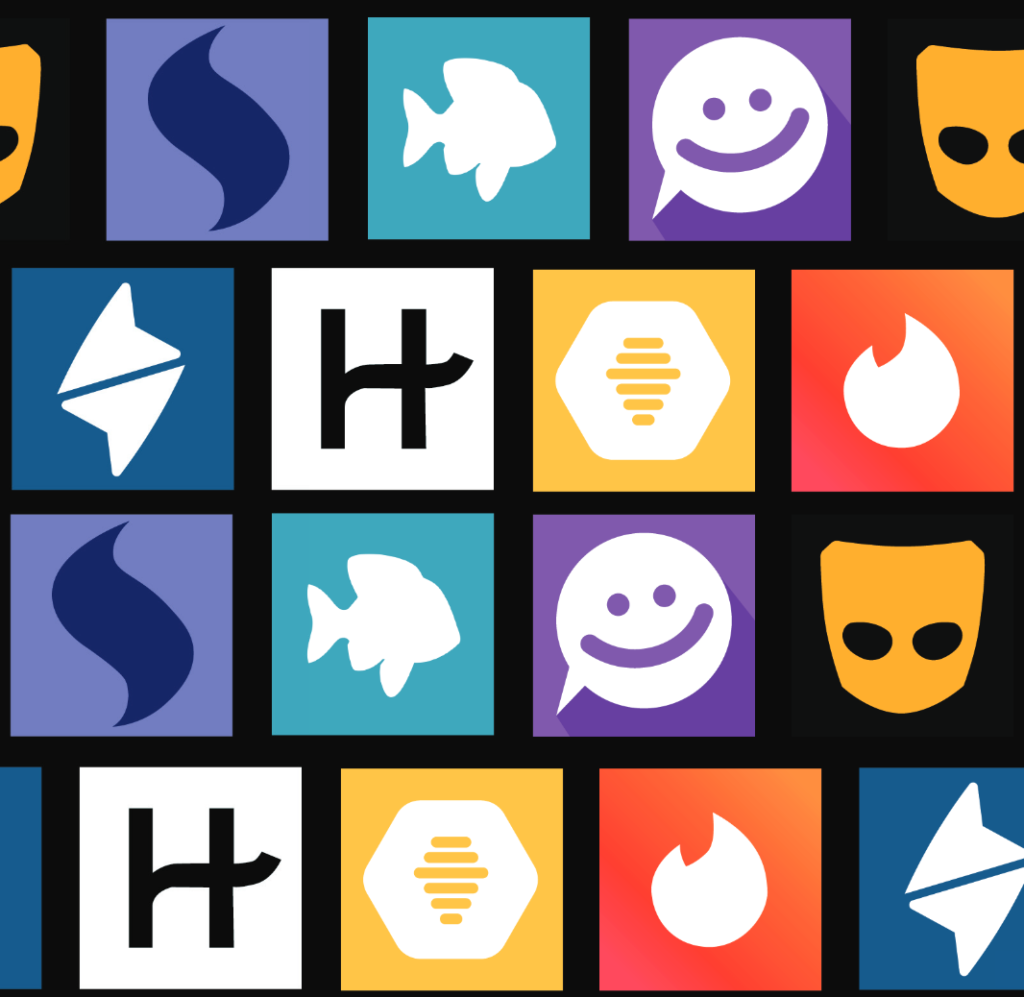Mobile apps are used by many to find quick dates, hookups, acquire new friends and seek long-term relationships. College students often find success, or failure, with different applications that are easily accessible with the touch of a fingertip. These new developments in technology leaves us wondering, how do dating apps impact the new-age dating scene?
Some of the most popular apps, according to Mashable, vary in use by a target dating pool and offer opportunities for finding, “the one,” through free or purchasable perks. Some popular apps include, Tinder, Bumble, Hinge, HER, Grindr and OkCupid, among many others. There are also online dating platforms, such as eHarmony or Match.com.
The process is simple when using these platforms. Open the app or website, select personal attributions, gender preferences and simply say yes or no to potential matches appearing on screen. Mobile apps make the selection process swift, sometimes prompting the user to swipe left for rejection and right for interest. Once a match is mutually confirmed, the users are then allowed to message each other.
 Michael Rabby, a digital technology and culture professor, explained that dating apps are a more convenient method for people to connect with each other in a simpler way and can bring like-minded people together who share interests.
Michael Rabby, a digital technology and culture professor, explained that dating apps are a more convenient method for people to connect with each other in a simpler way and can bring like-minded people together who share interests.
“I think it’s made it easier for people to move beyond their immediate social networks, which is probably a good thing. So, meeting people is easier, and it’s also a little less face-threatening, because rather in the olden days, you’d have to go up to people and say, ‘do you like me,’ and now you can do that kind of behind-the-scenes,” Rabby said. “If you think about the way we’re organized in society, where we’re kind of stretched out for the most part, people drive instead of walk, you don’t have a lot of human contact. Dating apps are a great way to mitigate that.”
As for the cons, dating apps provide a wide-array of predicaments, and according to Rabby, it is easy to become socially disengaged.
“The more alternatives you have to a relationship, the harder it is to focus on the person you should be focusing on. Having a distraction can be a harm to relationships,” Rabby said.
Shane Martin, a junior humanities major, described his experience with dating apps as convenient for meeting people in close proximity, but came with major limitations.
“I was trying to meet people outside of work. I was dating people that I had met in person, but there wasn’t much working out,” Martin said. “While there are positives, it’s kind of like this disconnect, getting to actually know someone.”
Using dating apps and websites can involve trivial communication barriers. Martin explained that it was difficult to get to know someone over the use of technology, struggling to get a sense of someone’s authentic personality.
 “There had been people that I had met, where I was like, ‘Oh I think we’re getting along really well,’ and you meet them in-person where, ‘Oh I don’t really connect with you actually.’ It’s really hard to gauge that,” Martin said.
“There had been people that I had met, where I was like, ‘Oh I think we’re getting along really well,’ and you meet them in-person where, ‘Oh I don’t really connect with you actually.’ It’s really hard to gauge that,” Martin said.
Maddie Baker, a junior integrated strategic communication major, is in the beginning stages of conducting dating app research in a quantitative research class. She elaborated on her personal interest in dating apps and their impact on relationships in today’s world. Offering insight, her opinion of dating apps creates a “double-edged sword” predicament.
“Some of the pros, it’s easier to connect with people a lot faster, and have the relationship style that you want. Obviously, if you use Tinder you can get a hookup pretty fast, if you use [another app] and you’re looking for something more serious, you might not get that right off the bat. The connections that you make with people depends. You can make friendships, Bumble has the friendship option, and even the professional option. But the cons are, the way people present themselves in the digital world,” Baker said.
Rabby explained although catfishing is a popular thing of the past, it can still happen. He encouraged people to present their true selves online and be cautious when meeting matches in person.
“It’s important that people honestly represent themselves online. I think it’s okay to have a flattering picture, I mean I recommend having a flattering picture, but it should not be something that is deceptive,” Rabby said.
Baker added how the use of heavy photo filters can damage people’s first swipe-impressions.
“Something that we’re researching is, people use a lot of filtered or digitally enhanced photos. I personally am against it, that’s kind of part of the self-presentation. Even Snapchat filters, if I saw a Snapchat filter I swiped left or said no. I think you should use photos that aren’t digitally enhanced,” Baker said.
An LGBTQ+ community member herself, Baker recommended a couple of apps to consider trying when seeking relationships.
 “I think for dating apps, I recommend especially for LGBTQ+ people, probably Bumble or Hinge,” Baker said.
“I think for dating apps, I recommend especially for LGBTQ+ people, probably Bumble or Hinge,” Baker said.
Considering WSU Vancouver is a commuter campus, hookup and dating culture on campus is different than most. Since people tend to leave campus once their classes are done, Baker explained dating apps can become a convenient option for those with busy schedules.
“Convenience is a big thing, we’re all college students, working part-time, we have internships, working 40, 60 hours. We don’t have time to go find somebody in a coffee shop, try to flirt with them, get rejected, and try again the next day. We don’t have any time for that, so that’s why I think dating apps have popped off, you’re able to make that connection and a lot of us feel like we’re being our true selves online, so we’re putting ourselves out there. Rejection might not hurt as much as meeting someone in person,” Baker said.
Rabby believes the future of dating apps is trending and on the upward.
“I don’t think it’s a fad, I don’t think it’s going away anytime soon,” Rabby said. “This is the new medium, so as long as the technology is sort of like this, this is kind of what it’ll be, and then it might change.”
Dating apps can offer convenience, but come with caveats of safety and authenticity concerns. Asecurelife.com offers safety tips for using dating apps, which first-timers and veterans alike could benefit from. Tips include avoiding apps that allow anyone to message you, providing your own transportation to in-person meet-ups, staying in public places and always telling a friend where you are going and what you are doing.

Olivia is a senior studying English at WSU Vancouver.
